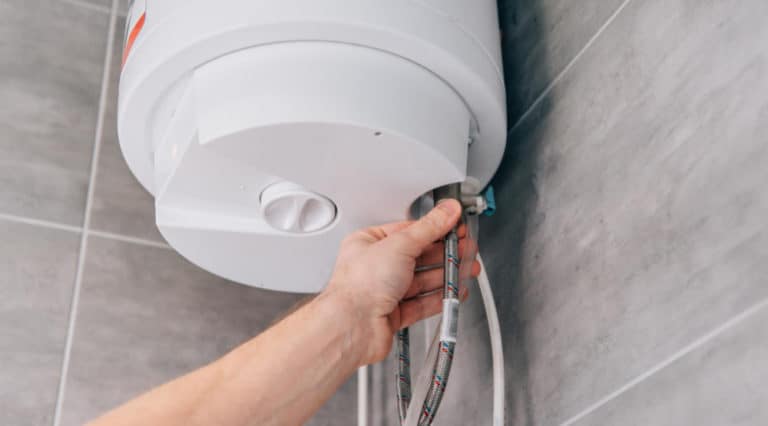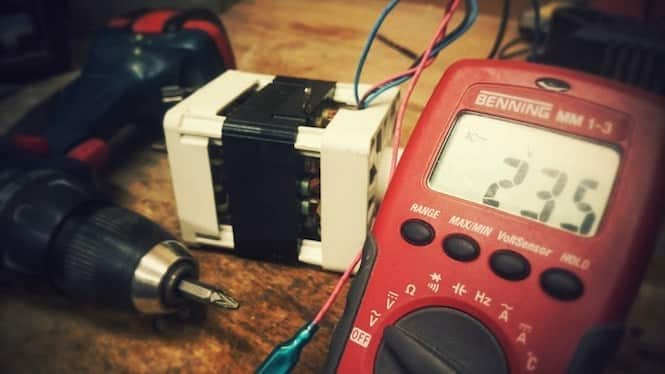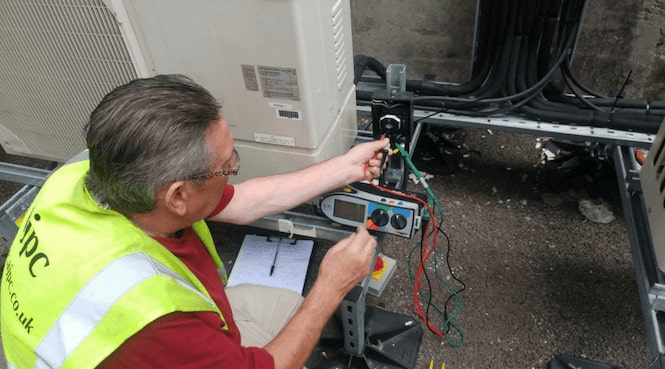Find My Local Expert How to Troubleshoot and Fix Electric...
Read More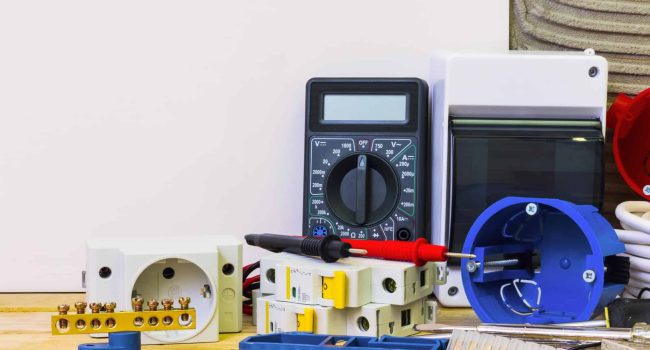
Selling Your Home? Need an Electrical Certificate (EICR): Yes or No?
If you’re planning to sell your house, you might be wondering whether you need an electrical installation condition report. The answer is yes, you do. In fact, it’s a legal requirement in many countries, including the UK.
An electrical installation condition report is a document that outlines the condition of your electrical installations. It will identify any potential hazards or defects and provide recommendations for remedial work. It’s important to have this report done before you put your house on the market, as it will give potential buyers peace of mind and help you avoid any legal issues down the line.
In this article, we’ll take a closer look at why an electrical installation condition report is necessary when selling a house. We’ll also explain what the report involves, how to get one, and how much it might cost. By the end of this article, you’ll have a better understanding of why this report is so important and what you need to do to ensure a smooth sale.
Which Electrical Report is Required for Selling a House?
When it comes to selling a house, there are several things that need to be taken care of, and obtaining an Electrical Installation Condition Report (EICR) is one of them. It is a legal requirement for the homeowners to provide an EICR when selling their property.
An Electrical Installation Condition Report is a declarative document that confirms the safety and condition of the electrical installations in a property. A qualified electrician conducts an inspection of the electrical systems and accessories throughout the property, and a comprehensive report is produced that identifies any electrical faults or hazards.
The report should be provided to the potential buyers, as it gives them peace of mind that the property’s electrical system is safe and does not carry any risks of injury or harm. Additionally, the report helps to identify any potential costs that may arise in the future if any electrical issues are found after the selling process is completed.
Estate agents and mortgage lenders also require an EICR to be presented before proceeding with the conveyancing process. These parties need to ensure that the property is safe for potential buyers and meets the necessary legal requirements. Without an EICR, the selling process may be delayed or halted altogether, resulting in significant costs and frustration.

Even if the property is relatively new or has recent electrical installations, an EICR is still required. The report may reveal faulty wiring, potential risks of electrical shock, or other electrical hazards that may exist. It is essential to obtain an EICR from a qualified and professional electrician, as they can conduct the electrical inspection accurately and produce a reliable report.
What is an Electrical Installation Condition (EICR) Report?
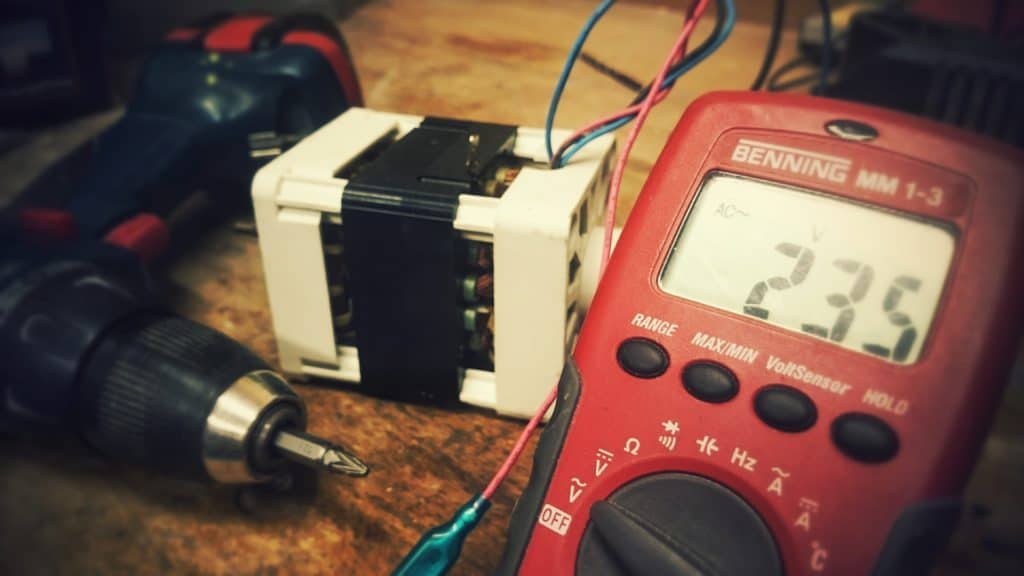
The Electrical Installation Condition Report (EICR) is a formal document that is used to confirm the safety and condition of the electrical installations in a property. The report is a necessary requirement for both residential and commercial properties and is usually conducted by a qualified electrician.
The report is carried out by a qualified electrician and may use specialized tools and equipment to carry out the testing, such as an insulation resistance tester, a continuity tester, and a polarity tester. The testing process may also involve visual inspections of the electrical accessories and systems, such as sockets, switches, and light fittings.
After the testing and inspection process has been completed, the electrician will produce a comprehensive report that outlines the findings. The report may include recommendations for further action, such as the need to replace faulty equipment or repair faulty wiring.
It’s worth noting that an Electrical Installation Condition Report is a crucial document that confirms the safety and condition of the electrical installation in a property. It includes various components such as the suitability of the consumer unit, testing of the electrical installation, and recommendations for further action. Obtaining an EICR from a qualified and professional electrician provides peace of mind and ensures that the electrical system is safe and compliant with the latest regulations.
What are the contents of an EICR?
The Electrical Installation Condition Report (EICR) is an important document that provides a comprehensive assessment of the electrical installations within a property. The report is approximately seven pages in length and covers several key areas related to the safety and suitability of the system.
The report includes a detailed assessment of the suitability of the consumer unit, also known as the fuse box, to ensure it complies with current regulations. The electrician will also carry out testing and checking of earthing to ensure the system is earthed correctly and can protect against electric shock.
The report will also include a load testing of each circuit to ensure that it can handle the electrical loads it is subjected to, as well as an assessment of the wiring age, type, condition, and general wear and tear. This information is crucial to determine whether the system is safe and effective.
In addition to these tests, the report will have a comprehensive visual check of electrical fittings and locations. This includes identifying any damage to electrical switches and sockets, ensuring the safety of any previous modifications, and checking the degradation and integrity of the property’s wiring.
If any faults or hazards are identified during the testing and inspection process, the electrician will make recommendations for any necessary work or repairs. Safety concerns and modifications will be documented in the report.
Why do I need an EICR to sell my property?
If you’re selling a residential property, obtaining an electrical certificate could prove to be a major advantage. A valid electrical certificate will provide buyers with the confidence that the electrical installations and systems within the property are safe and adherent to industry standards.

While it is not a legal requirement to have an electrical certificate to sell a house, it’s always a good practice to have one to provide peace of mind to potential buyers.
Having an electrical certificate can make your property more attractive to potential buyers, as it assures them of the safety and quality of the electrical installations. This can also make the entire selling process smoother and more efficient since the documentation is readily available. The prospective buyer can also make an informed decision based on the report and act accordingly, resulting in fewer holdups during the conveyancing process.
Moreover, an electrical certificate can provide valuable information and insights regarding any remedial work required. This will give you the opportunity to carry out any necessary repairs before putting the property on the market. This way, you won’t be caught off guard by any unexpected issues that may crop up while you are in the middle of the selling process.
It’s important that having a valid electrical certificate guarantees the presence of safe and sound electrical installations and systems within the property and provides potential buyers with peace of mind. It also ensures that all documentation and information surrounding electrical-related issues are available and up-to-date.
Who carries out these reports?
An electrical safety certificate can only be issued by a qualified electrician who is competent and registered with a relevant body such as NICEIC or NAPIT.

These professionals should have at least two years of relevant experience and hold qualifications covering the latest edition of Wiring Regulations.
For homeowners and landlords looking for a qualified and regularly assessed electrician, it is recommended to use the Electrical Competent Person Scheme. This scheme allows you to search for electricians who are registered and approved to carry out electrical work in accordance with Building Regulations.
When researching a particular electrician, online reviews can also be helpful in determining their reputation and reliability. By choosing a qualified electrician and obtaining an electrical safety certificate, property owners can ensure the safety and quality of their electrical installations.
We also have qualified electricians that are registered with these relevant bodies. Look for your nearby electrician!
Why should I hire a registered electrician for the report?
When it comes to electrical safety, it is always important to hire a qualified and registered electrician to carry out an Electrical Installation Condition Report (EICR). Although anyone can technically conduct an EICR, only a registered electrician can guarantee that the inspection will be done to a high standard and in accordance with national safety standards.
Choosing a registered electrician ensures that the person carrying out the inspection is fully qualified, experienced, and regularly assessed in their field. They have undergone extensive training and have passed rigorous tests to prove their knowledge of electrical installations. This means that they can identify potential electrical hazards that others may not be aware of, ensuring that they are fully qualified to conduct safety inspections.
Moreover, choosing a registered electrician gives homeowners and landlords peace of mind that their electrical systems are being inspected and reported on by a competent professional. The report produced by the electrician will be comprehensive and clear, outlining any electrical faults and necessary remedial work. This report then provides important information for both potential buyers and mortgage lenders, as it guarantees that the electrical installation in the property meets national safety standards.
What are the costs of having an Electrical Installation Condition Report (EICR) carried out?
When it comes to getting an Electrical Installation Condition Report (EICR) for your property, there are several factors that can influence the cost. In this article, we will explore these factors and provide average costs for different types of properties.
#1 Size of Property:
The size of your property is one of the most significant factors that determine the cost of an EICR. A larger property will require more time and work to inspect, resulting in higher fees. For instance, you can expect to pay up to £300 for a five-plus bedroom house, whereas a one to two-bedroom flat would cost around £100 to £150.
#2 Age of Electrics:
Another factor that affects the cost of an EICR is the age and condition of your electrics. If your electrical installation is old or in poor condition, it may require more work to inspect. Your electrician will need to spend more time checking for faults, identifying if any previous electrical work was done incorrectly, or if there are any defective parts. The cost can range from £100 to £400, depending on the complexity of the job.
#3 Condition of Electrics:
The condition of your electrics can also influence the cost of an EICR. If your electrical installation is unsafe or requires substantial repair work, the electrician may need to carry out additional tests and repairs, resulting in a higher fee. On average, an EICR for such properties can cost anywhere between £200 to £500.
#4 Average Costs:
Here is a breakdown of the average costs of EICR based on the type of property:
- One to two-bedroom flat: £100 to £150
- Three to four-bedroom house: £200 to £250
- Five-plus bedroom house: £300 to £400
Note: Prices may vary
#5 Legal Requirements:
It’s worth noting that some properties may require additional inspections based on their use. For instance, commercial properties must undergo more thorough inspections every five years per law. These inspections also come with an additional cost that varies based on various factors.
In summary, the cost of an EICR varies depending on several factors such as the size, condition, and age of the electrics. Always hire a licensed electrician, get a written quote, and compare the costs from different providers before making a final decision.
What are the consequences of not possessing an Electrical Installation Condition Report (EICR)?
If you’re ready to sell your house, it’s crucial to understand the importance of having an Electrical Installation Condition Report (EICR) for notifiable electrical work. Not only will potential buyers be concerned about the safety of the electrical installations, but mortgage lenders may also be hesitant to complete the sale without one.

So, what happens if you don’t have an EICR when selling your house? There are several options to consider to rectify this issue. One possibility is to reach out to the company that performed the initial work and ask for a copy of the EICR. If that is not possible, you can download a digital copy of the EICR from the NICEIC website, provided it was issued by a contractor registered with the NICEIC.
Another option is to get retrospective certification from the electrician who carried out the work, providing proof that the electrical work was completed to the required safety standards. This can be a time-consuming process and may not always be possible, but it’s still worth considering.
Lastly, homeowners can purchase an indemnity insurance policy to cover themselves for any potential costs or damages that may arise due to faulty electrical installations. This can provide peace of mind to both you and potential buyers.
Not having an EICR when selling your house can result in significant fines and lawsuits when inheritors discover electrical faults. Therefore, it’s essential to obtain an EICR to ensure the electrical installations comply with safety standards and give potential buyers peace of mind.
As a buyer, do I also need to have an EICR done?
If you’re in the market to purchase a new home, it’s important to consider all factors that could affect your safety and the value of your investment. One crucial factor to consider is the state of the property’s electrical systems. While it’s not a legal requirement to have an up-to-date electrical installation condition report (EICR) when buying a home, it is highly recommended.
An EICR is a declarative document that provides a thorough assessment of your property’s electrical installation. It checks for electrical faults, highlights areas of concern, and determines whether the system meets the required safety standards. Having an up-to-date EICR ensures that your home’s electrical systems are safe, reliable, and in good working condition.
Potential buyers should insist on seeing an EICR before purchasing a home. While it may not be a legal requirement, it’s essential for peace of mind. If the EICR does highlight any issues, the buyer can make an informed decision on whether or not to proceed with the sale.
While arranging an EICR may come with potential costs, it’s worth it to ensure that the property is safe and to avoid potential issues down the line. A reliable agent or solicitor can advise potential buyers on the best course of action, including asking the selling party’s solicitor for an EICR report.
An EICR is not necessary for purchasing a home, but it is highly recommended. It provides assurance that the electrical systems are safe and reliable, and it allows buyers to make informed decisions. Potential buyers should insist on seeing an up-to-date EICR, and if necessary, seek advice from a reliable agent or solicitor on how to proceed.
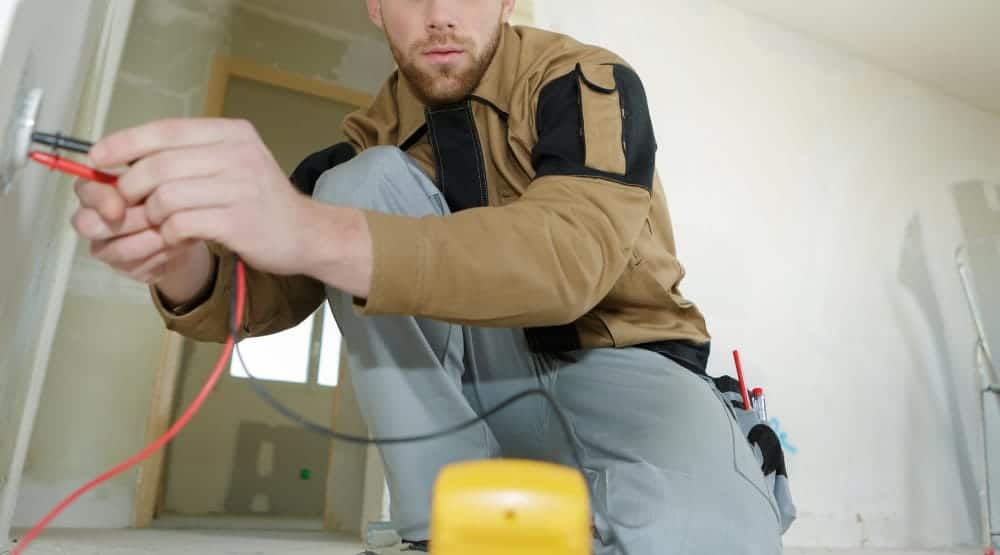
Conclusion
If you’re planning to sell your house, it’s important to ensure that it’s safe and compliant with the latest electrical safety standards. Getting an Electrical Installation Condition Report is a wise investment that can help you identify any potential hazards and give you peace of mind knowing that your home is safe for potential buyers. Not only will it help you avoid any legal issues, but it can also increase your property’s value and make it more attractive to buyers. So, if you haven’t already, consider getting an electrical inspection condition report before putting your house on the market.
You May Also Like...
Guide on Electrical Inspection and Testing
Find My Local Expert A Guide about Electrical Inspection and...
Read MoreElectrical Installation Condition Report
Find My Local Expert Everything You Need to Know About...
Read More9 Appliances That Can Trip Circuit Breakers
Find My Local Expert 9 Appliances That Can Trip Circuit...
Read More7 Common Electrical Issues in Your Household
Find My Local Expert 7 Common Electrical Issues in Your...
Read MoreGet Started With Your EICR Today!
My Trusted Expert Guarantee
Experts Have Been Vetted & Approved
